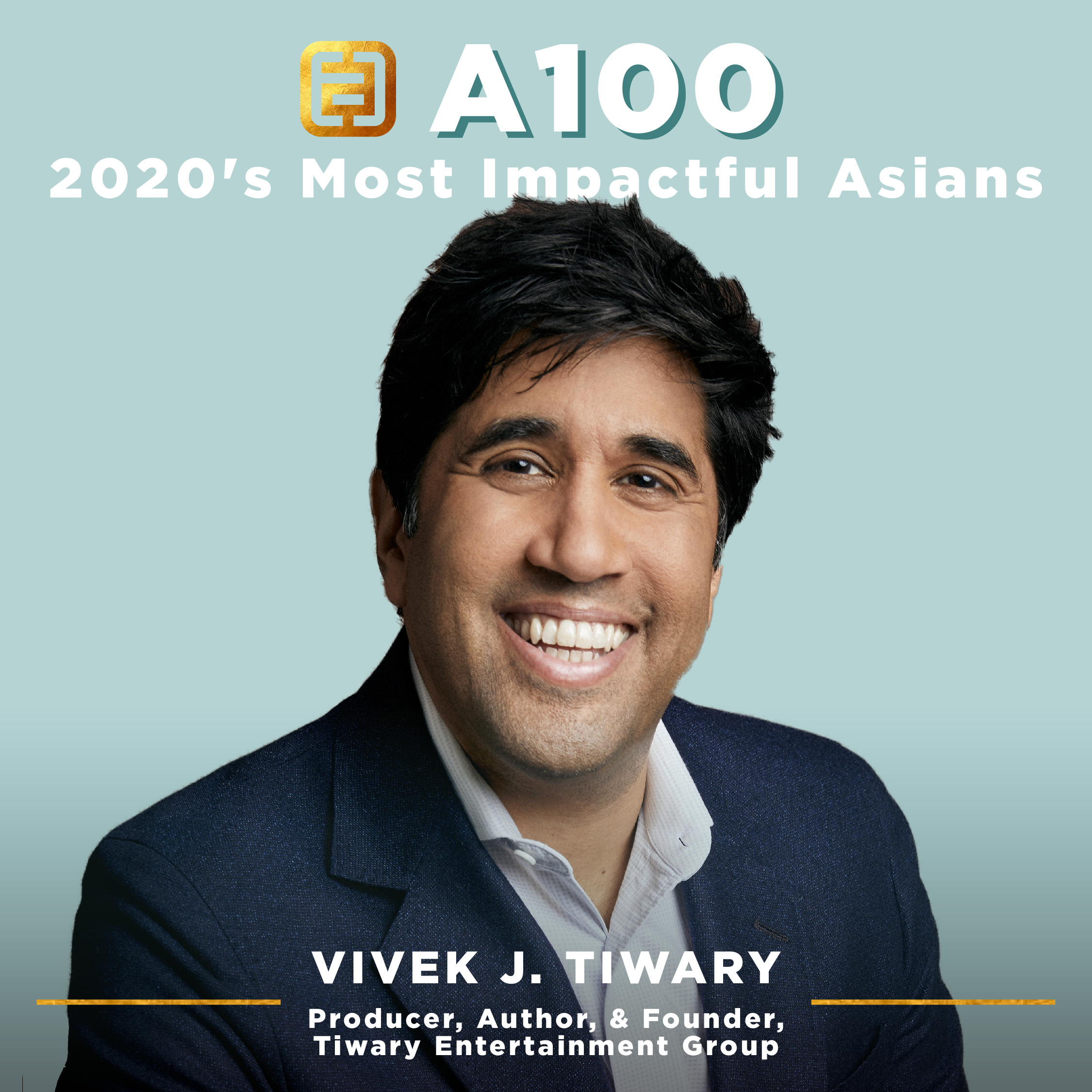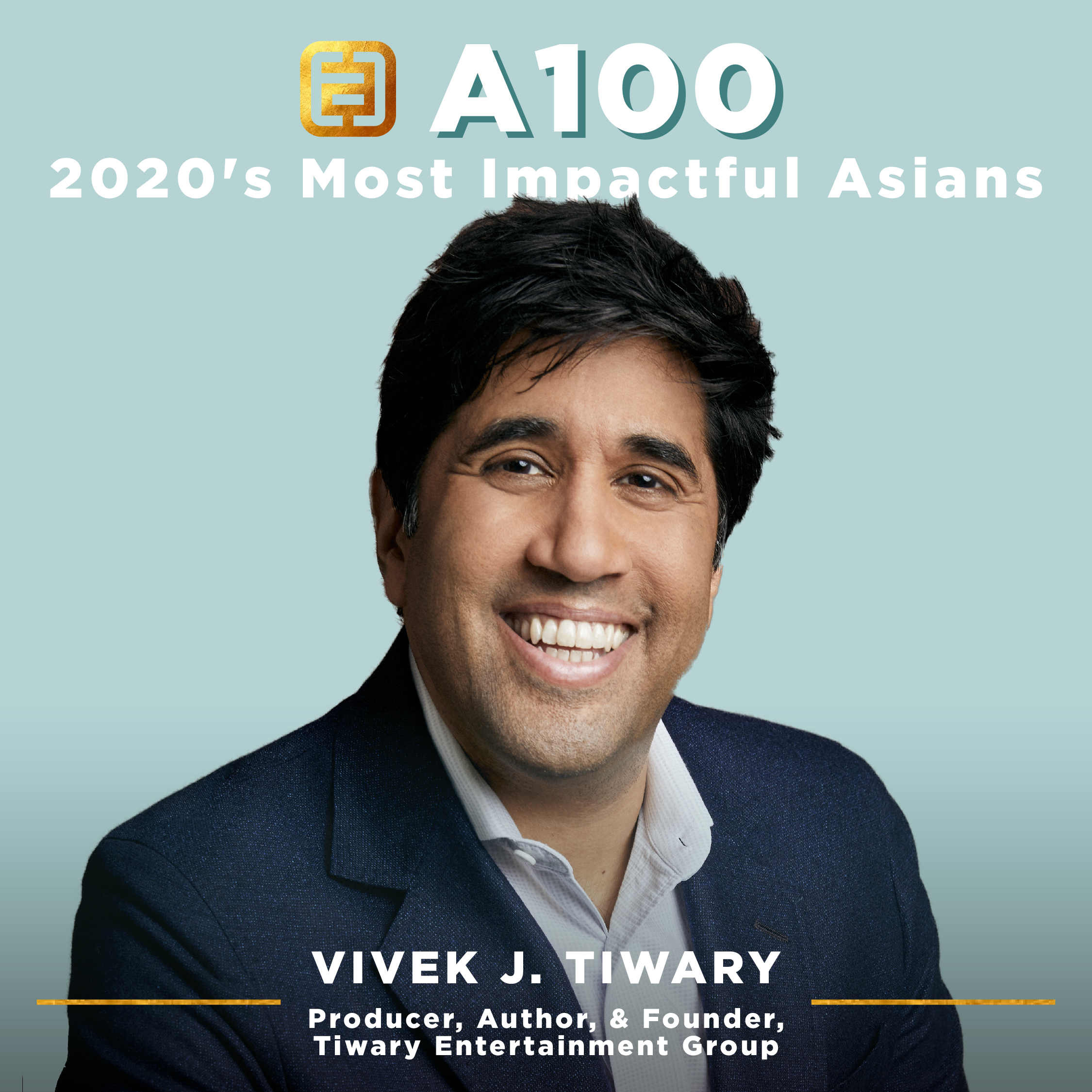Gold House, the largest nonprofit collective of Asian cultural leaders that accelerates the inclusive representation and empowerment of Asians, announces its third annual A100 List to celebrate Asians and Asian American & Pacific Islanders (AAPI) and their transformative contributions to society. The seminal 2020 A100 commences Asian Pacific American Heritage Month by spotlighting the 100 most esteemed and impactful Asians in entertainment and media, fashion and lifestyle, technology, business, and social activism. Meet this year’s Honorees at A100List.com.
When you have the opportunity to ask some of the most interesting people in the world about their lives, sometimes the most fascinating answers come from the simplest questions. The Thrive Questionnaire is an ongoing series that gives an intimate look inside the lives of some of the world’s most successful people. Below, Vivek J. Tiwary opens up about how he stays optimistic, what he learned from the biggest turning point in his life, and why he likes to see failures as learning experiences.
Thrive Global: What’s the first thing you do when you get out of bed?
Vivek J. Tiwary: I take my dog Noci for a morning walk up and down the hill on which our house sits, and on my return home I help my wife Tracy get our kids ready for school. In other words, I try to be there for my family first thing, setting my priorities straight.
TG: What gives you energy?
VT: I love what I do as a producer—speaking with artists and putting creative teams together for shows is a rush for the fanboy in me. Being on that first call between Alanis Morissette and Diablo Cody was a dream! But more than anything, I love being a father and a husband—anytime I’m able to spend time with my family, it’s energizing.
TG: What’s your secret life hack?
VT: Remembering this—that no dream is too impossible and no person too unlikely to realize that dream.
TG: Name a book that changed your life.
VT: Charles Dickens’ A Christmas Carol. My family and I read it aloud every December (and my parents used to do this with me). No matter what your religion—and even if you’re not religious—it’s a wonderful tale about the power of memory, family, loyalty, and hope.
TG: Tell us about your relationship with your phone. Does it sleep with you?
VT: Ha! No — I turn my phone off at least 30 minutes before bed and try not to turn it on again until after I have my kids settled in at school the next morning.
TG: How do you deal with email?
VT: Not as well as I’d like!
TG: You unexpectedly find 15 minutes in your day, what do you do with it?
VT: I run to my wife and then to my kids for a kiss, a hug, and a check-in/catch-up! Of course, this has only become possible in these days of sheltering-in-place, when we’re all in the same house. So I’m making the most of that—finding the bright spots created by dark times.
TG: When was the last time you felt burned out and why?
VT: The truth is, I feel like I’m on the verge of burning out about once every 3 months! And then I try to focus on my priorities, which usually pulls me out of the quagmire. For me, “burning out” is usually tied to getting swamped with the minutiae of life elements that seem important, but simply aren’t top priorities.
TG: When was the last time you felt you failed and how did you overcome it?
VT: At the risk of sounding like a self-help Guru, I don’t believe in failure. Everything is a learning experience. I try to look at myself TODAY, and if I mostly like who I am (and I mostly do), then nothing has been a failure. You are a sum of your past actions and life’s experiences.
TG: Share a quote that you love and that gives you strength or peace.
VT: “I am hope.” – Morpheus (from Neil Gaiman’s The Sandman)
TG: How do you prioritize when you have an overwhelming amount to do?
VT: When I’m overwhelmed or overly stressed, it’s usually because there are a lot of little things that need to get done that seem important (but really aren’t). In these moments, I find it useful to prioritize broadly—family first, then work, then personal, etc. If I realize I’m mostly taking care of the “broad buckets” of my priorities, then that makes me feel less overwhelmed.
TG: What advice would you give your younger self about reducing stress?
VT: Everything happens for a reason and stress isn’t helpful or productive—moving forward is. In fact, I’d try to stay out of my younger self’s way!
TG: Do you have any role models for living a thriving life?
VT: Brian Epstein, the manager of The Beatles, my Historical Mentor, and the subject of my graphic novel The Fifth Beatle: The Brian Epstein Story. Brian’s story taught me my life hack (see question 3)—that no dream is too impossible and no person too unlikely to realize that dream.
TG: What’s your personal warning sign that you’re depleted?
VT: When I get cranky with my kids for no good reason. I try to identify those moments, acknowledge them, and apologize. Even if long after the fact.
TG: What’s a surprising way you practice mindfulness?
VT: How’s this for a surprise — I turn to a piece of technology! My wife (neuroscientist Dr. Tracy Dennis-Tiwary) created the game-like app Personal Zen that you can play for just a few minutes a day, and it’s clinically proven to reduce stress. I find it easy, fun, and soothing.
TG: How do you reframe negative thinking?
VT: It’s all a matter of shifting my perspective. We live in a time of a global pandemic—and I can’t control or change that fact. If I were to compare my current life to my pre-pandemic life, I would find myself sinking under negative thinking. But whenever I can shift my perspective to realize this is simply the world we live in now, I immediately also realize I am very very blessed within that world. My family and I are healthy, safe, and together. And my work projects are moving forward successfully, albeit with new challenges. I ought not to be negative, I ought to count my blessings.
TG: What brings you optimism?
VT: My kids! They are the spring in my step and the glint in my eye. They represent hope, and the future.
TG: Fill in the blanks: People think I/I’m _______, but really I/I’m ______.
VT: People think I’m incredibly outgoing, but really I prefer quiet nights at home with my family. And so I’ve uncovered some joy in these days of sheltering-in-place, because I’m sheltering with the people I love the most.
TG: Tell us about a small change you have made in your life to improve the way you connect with others. What did you do, how long did it take until it became effective, and how you sustain this habit?
VT: Another book that was impactful for me in my life (see question 4) is E.M Forster’s A Passage to India. I read it as a teenager and realized that one of its core themes is the sanctity of personal relationships. That became my “mantra” in life—the sanctity of personal relationships. Every relationship, big and small, is sacred and worth maximizing—this could mean simply smiling at the bus driver on my morning commute, to being there for my wife and children when they need me the most. I try to remember this mantra and maximize the sanctity of every personal relationship, with every person I cross.
TG: What was the biggest turning point in your life?
VT: Losing my mother to cancer shortly after I graduated from Wharton. I had lost my father to a degenerative neurological disease only two years before that, and I’m an only child. So losing Ma was like losing them both—losing my tether and lifeline to my past. It was dark and traumatic, but it also eventually gave me focus and a desire to better my future. It made me who I am today, for better and worse. And on a specific note, I started my company Tiwary Entertainment Group with the life insurance money I received from Ma’s passing—so I love reflecting on the fact that she is literally in my company’s DNA and a part of everything I do, every single day.
TG: What’s your evening routine that helps you unwind and go to sleep?
VT: In bed, I read a physical book (i.e. not on a tablet/device) that has nothing to do with work. Even if for five minutes, I find pleasure reading calming.


